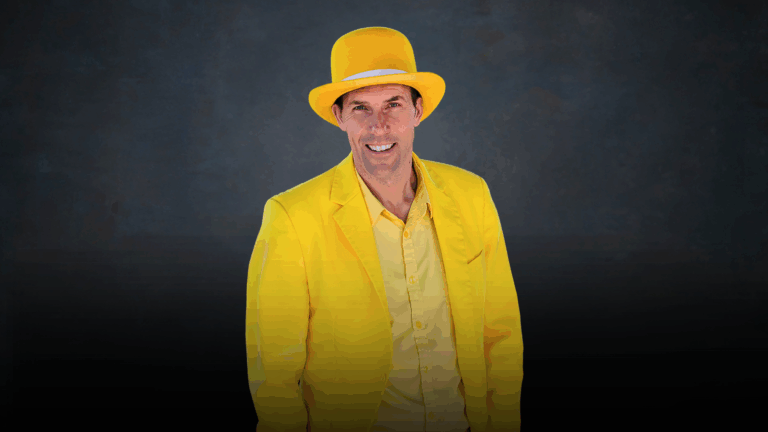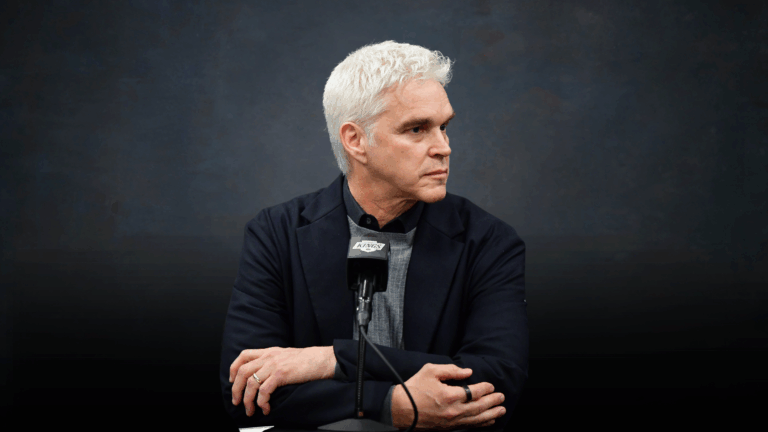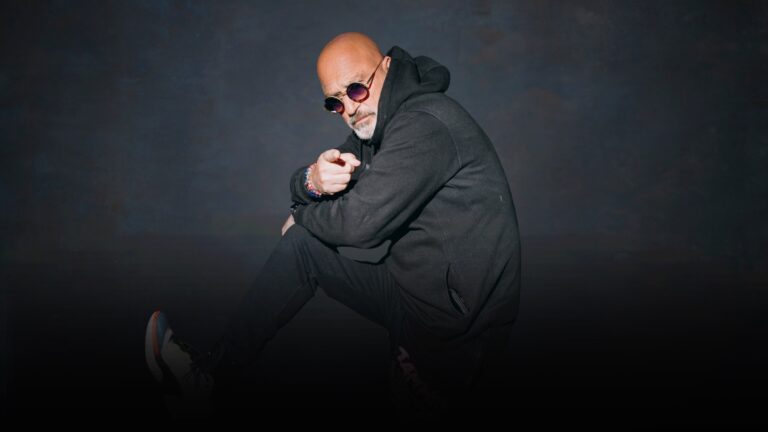This week’s conversation is with Mary Helen Immordino-Yang, a Professor of Education, Psychology, Human Development and Neuroscience at the University of Southern California.
Mary Helen studies the psychological and neurobiological development of emotion and self-awareness of adolescents in educational settings. Since earning her doctorate from Harvard in 2005, she has received numerous awards for her research and impact on education and society, including an Honor Coin from the U.S. Army, a Commendation from the County of Los Angeles, and a Cozzarelli Prize from the Proceedings of the U.S. National Academy of Sciences.
Currently, Mary Helen is conducting several funded, multiyear neurobiological research studies on adolescent students and their teachers. In this conversation we discuss how students really learn, and what we can do to enhance how we teach in an education system.
But Mary Helen’s insights extend far beyond the educational setting – those with a deep understanding of the role emotion plays in human development will have a distinct advantage for just about any endeavor one is interested in – whether that be as a modern leader, a parent or coach, athlete or teammate. And that’s why I wanted to roll up my sleeves with Mary Helen.
“The current structure of how schools are set up does not adequately support very basic human capacities. In fact, it directly punches and undermines them. That is a major place where innovation is needed.”
In This Episode:
Refocusing on development in our schooling systems
We really misunderstand this. The main aim of schooling in the current modern world is not learning, it’s development. And wait, let me explain what I mean by that, before somebody runs out and goes like, Mary Helen Immordino-Yang says school isn’t about learning. Learning happens, but learning is serving a bigger aim, and that’s always the case. Why are you learning these things? How is the experience of learning this, whatever it is, changing what you’re capable of thinking like, and being like into the future? How is it changing your development? And that is the key thing. So, what we really need to refocus around, I think, in the design of schooling, is the development of the people in the system, and then the learning follows that.
What is the current goal of schooling?
Right now, we’ve got the cart in front of the horse, the development should be pulling what the rest of the decision-making is around what kids are doing in school, what teachers are doing in school? What counts as training for teachers? Which is also inadequate, and not setting people up to be successful in the role that they’re taking on, which is to support the growth and development of young people as they engage with really difficult new ways of doing things, and thinking about things. That’s what school actually is, and it is simply not designed around that right now. We have made this false narrative in our mind, that school is about what you can remember.
Innovation is needed
As humans we are deeply cultural, deeply social thinkers, we aren’t little automaton robots who deploy, we’re actually humans. And what that means is we have feelings, we have beliefs, we have values, and we have skills, we have experiences we bring, we have cultural ways of knowing about things that are based in the ways that we’ve experienced them with other people in the past, and we bring that to everywhere we go. And so the school system, the structure of how schools are set up, does not adequately support those very basic human capacities, in fact, it directly punches and undermines them. That is a major place where innovation is needed, serious innovation is needed.
Questions we need to ask
What we really need to do is think about what are we trying to achieve here developmentally? How do we want people to think when they’re here? How do we want them to develop feelings within the space of thinking? What does it mean to feel interested, to feel curious, to feel determined about complex skills and information? What does it mean to have a sense of purpose that you build that connects to your newly emerging skills that you can actually use them for something that you is purposeful in the world over time that grows you and improves the world you’re in? How do we help people feel that way about the process of thinking in schools? And then what would it take to actually design around that as our north star?
Imagery and learning
The other thing to know about the brain, is that the networks you use to visualize or to feel yourself moving your arms and legs in space, for example, are the same ones that actually move your arms and legs in space. So, there’s lots of good research showing that when you even visualize doing certain kinds of skills, you actually improve your ability to do even a physical skill, like a tapping thing with fingers, you can learn it by practicing it, but you can also learn it by imagining practicing it while your hands are not moving, you won’t get quite as good, but you’ll still get better. So it’s like your brain isn’t duplicative, it doesn’t have the thinking about it place, and then the, it, the, it, and the thinking about it are the same thing.
Letting the learner build out their own capacities
In order to build out the capacities to manage yourself in a context and make stuff go, the person themselves needs to build out those capacities. That means the whole thing they need to slowly start to engage with in order to build the capacity to engage it more systematically over time. In school, we do it for you way, way too much. We manage it, we hyper manage it, we micromanage it, we hope to control it, we test it, we gate it depending on whether you pass this test, you can go right, and we don’t let people actually have the deep skill building experience of managing themselves in difficult intellectual spaces. And you only build your mind and brain and skills by managing it yourself, by doing the work of doing it. And we do not let that happen. It’s inefficient, it’s messy, it’s got false starts, it’s a little bit not perfectly standardized, we don’t have tolerance for that in our education system.
Redefine, then redesign
You need to know what you’re redesigning around. And so often the school systems – and it’s not their fault – they’re overworked, they’re underpaid, they don’t know what they’re aiming for, they don’t know what it looks like to have high achievement, they think high achievement is high achievement on our standardized metrics, but that’s a circular argument. So, if you’re aiming for high quality development, it’s full self actualization of every youth in that system, as they engage deeply with whatever it is they are interested and good at and bring that to bear on the world, so they make the world a better place together, if you want to think about it that way, then we need to really help educators and parents and all society actually understand what learning is and what achievement actually entails?
A different way of assessment
Let me just be clear, this is not code speak for anything goes, sloppy academic skills and wrong answers in math is fun, you’re not going to get your rocket to the right place if you didn’t calculate properly, you have to do it properly, the proof is in did it work or not? And then deconstructing what happened, and would you learn from that? But it’s a very different way of assessing. So a major problem, and it’s not just me saying this, a major problem with our education system, and it comes out of a deep desire to do right by kids so it’s not like it’s evilly intended, but a major problem is that we have tried to legislate intentions by instituting a standardized and very rigid system of accountability, achievement, high stakes testing, as the way that we judge our education system outcomes.
How plausible is a complete education reform?
Well, it really puts a huge burden on the teachers to be development experts, they need to recognize in young people, by talking with them, by working with them, by examining their work, and talking with them about how they did it, they need to recognize in young people the pads, that little Mikey is taking that aren’t aligned with the standardized thing maybe, but, oh, he’s got some good ideas, let me steer you this way, try it this way, Mike. So, they really have to help the kid engage in the process, which is exactly what you’re talking about when you’re preparing people for the Olympics, there’s no test you pass, there’s a performance based thing you pass. And it’s expected that it’s going to be dynamic, some days you’ll do great, and some days you might not. And that’s the nature of it.
What can parents do to encourage development?
Engage thoughtfully, and listen, and ask questions, as your kids are sharing with you how they’re thinking. And have conversations, do things together, and stop and unpack what it is. If your kid brings home a test, it doesn’t matter what their grade was, that’s not the start of the conversation, the start is, “Hey, tell me about this problem, I see you did it like this, or like that,” maybe it was right, maybe it wasn’t right, it doesn’t matter, they’re engaged with you, oh, do you see where the…. So, that’s actually not valid that your right triangle has this, that, and the other, so no wonder it didn’t work out. You know what I mean? So, you really start to engage with the child in a process-oriented way, and take the power away as much as you can, but it’s very difficult in today’s world, take the power away from the standardized outcome metric.
Developmental mentoring
You help them [kids and learners] in supporting their developmental process. Understanding how they’re thinking about things, and what really good thinking about things in that space would look like, and help them to see that, and to try that on, that’s what you do. That’s a more developmental way of mentoring and teaching, you’re helping that person discover in themselves the strengths they need to be able to do the thing.
What Mary Helen is currently working on
We don’t really understand at all the social work and emotional engagement that goes into effective teaching in those tough disciplinary contexts, I mean like intellectual disciplinary context. So, we’re studying teachers, we’re trying to lift up what they do, we’re trying to write papers about that, do talks about that. And then we’re also studying kids, understanding how it is that they make meaning of the things that they’ve witnessed, the stories and narratives that they construct in their mind, how they learn from the news from the things they see, and then what do they turn that into in terms of a lesson for themselves? And the way that those constructed narratives actually we’re finding, literally grow the teenagers brains over time. Above and beyond the effects of IQ, above and beyond the effects of family socioeconomic status, parents education level, the ways kids interact with complex stories about other people’s lives, and try to make sense out of it for themselves, and then apply it in their world just the way they do that actually grows their brain in all kinds of important ways.



